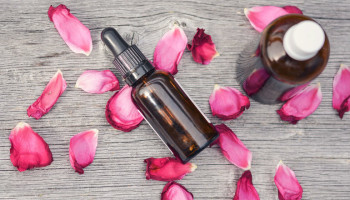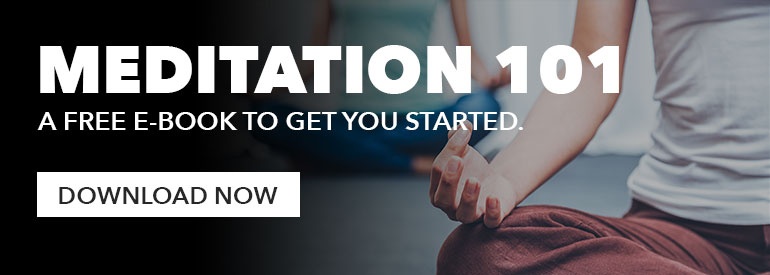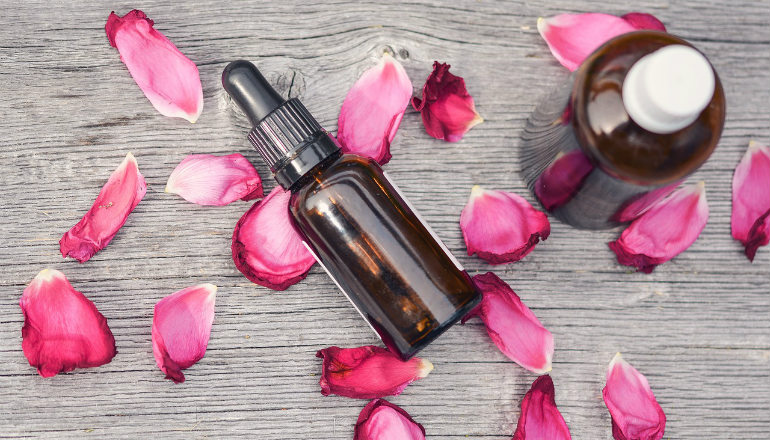 Reading Time: 8 minutes
Reading Time: 8 minutesWhat’s in your medicine cabinet right now? What do you use to get rid of a headache or calm an upset stomach? What do you use for anxiety or depression? What’s your go-to for a cold or flu, and what do you apply to kill bacteria on cuts and scrapes? How different would your medicine cabinet look if you replaced each of those medications with a natural solution?
In the search for products to remedy our ailments, we’re presented with a plethora of medications and medicated ointments. Unfortunately, these treatments often mask symptoms at the expense of undesirable side effects. Side effects range from the more obvious like a rash or constipation, to those that occur below the surface and could potentially harm our internal organs.
Did you know that just about all medications are comprised of synthetic compounds modeled after the naturally-occurring medicinal properties of plants?
One of the biggest benefits to using plants for healing is that they are effective and designed to work synergistically with our bodies — therefore, producing little to no side effects. Side effects rarely occur with plants, provided they are pure, without added chemicals or pesticides, and are used properly in reasonable amounts.
Plants have the power to help us heal. Think back to ancient times — what did mankind use for medicine back then?
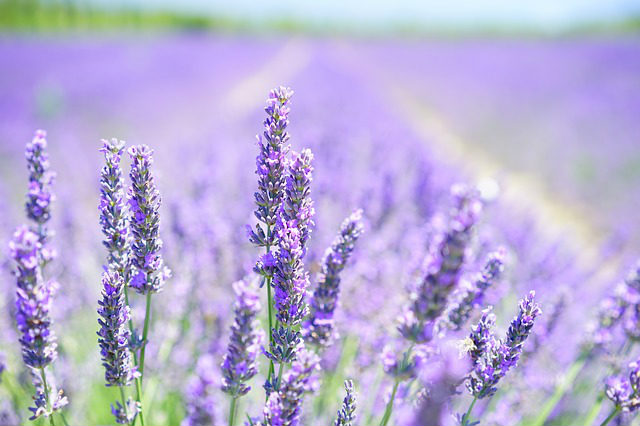
The Plant Power in Essential Oils
One way to experience the beneficial properties of plants is through the use of essential oils. Essential oils are volatile plant compounds in liquid form, most often distilled or extracted from the seeds, bark, leaves, stems, roots, flowers, fruit, peels, etc., of plants.
Because it takes many plants to fill one bottle of essential oil, these oils are highly concentrated (granted the product is 100% pure). Therefore, a small amount goes a long way, and it’s fairly difficult to “overdose” on essential oils.
There are hundreds of health benefits to using essential oils, and there seems to be an oil for just about everything. A few of the properties of essential oils include: antibacterial, antiviral, antifungal, antihistamine, anti-tumor, anti-inflammatory, stimulating, sedative, anticonvulsant, vasodilating, pain-reducing, cleansing, immune-booster, uplifting, calming/soothing, antiparasitic, nerve tonic, warming, cooling, antidepressant, antioxidant, decongestant, digestive aid, anti-infection (natural antibiotic) — and the list goes on.
When using essential oils for treating an ailment, consistent application will yield the best and quickest results. In general, a little more patience and persistence is needed when using natural remedies, but finding relief with no ill effects, will be well worth it, especially if one of your goals is to raise a healthy family.
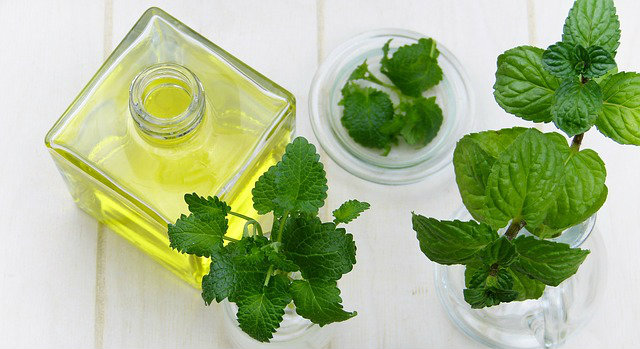
The 3 Ways to Use Essential Oils
1. Aromatically: inhaled or diffused into the air using a diffuser or vaporizer.
When an essential oil enters the olfactory system through our nostrils, it reaches the limbic system of the brain, which allows the aroma to have profound physiological and psychological effects. Aromatic use of essential oils is a great way to quickly boost your mood and to help relieve stress, anxiety, depression, and emotional trauma.
Try placing a drop of your favorite oil in the palm of your hand, rub your palms together, then cup your palms around your nose and mouth (taking care to avoid the eyes), and take a nice, slow inhale. You should feel your mood shift instantaneously.
2. Topically: applied directly to the skin.
This application works well for treating skin conditions such as rashes, wrinkles, warts, burns, etc. If you’re spreading the oil over a large area, dilute about two or three drops of essential oil with a carrier oil, (which can be any variation of pure vegetable-based oil, such as coconut, olive, almond, jojoba oil, etc.), so it’s easier to spread. Be sure to dilute essential oils for use on babies, the elderly, and those with sensitive skin.
For quick absorption into the bloodstream, try rubbing two or three drops of oil on the bottoms of your feet, which have the largest pores in your body.
3. Internally: taken under the tongue, in water or other beverage, or in an empty capsule and swallowed.
This method is best used when dealing with more serious conditions, where you want to tackle something quickly. Essential oils are often taken internally for gastrointestinal issues, colds, flu, and getting rid of parasites. Oils could help support the treatment of cancer, diabetes, high blood pressure, and other diseases. However, pregnant women, those with liver issues, and children under six should not ingest essential oils.
If you do ingest oils in water, use a ceramic, glass, or stainless-steel container. Due to the potency of essential oils, some of them can eat up plastic (but are safe for your body when consumed in moderation). Lemon oil, for example is known to cleanse petrochemicals from the body, which is wonderful, considering all the plastic packaging we can encounter throughout the day.
BEWARE: Not all oils are created equal and many are not suitable for human consumption. Please, check with the manufacturer to make sure the oil is pure, not treated with chemicals, and is safe for internal use. Click here for more detailed information on the safe usage of essential oils.
How to Choose Your Essential Oils
According to Modern Essentials, a Contemporary Guide to the Therapeutic Use of Essential Oils, one of the factors that determines the purity and therapeutic value of an oil is its chemical constituents, which can be affected by variables such as: the part(s) of the plant from which the oil is produced, soil condition, fertilizer (organic or chemical), geographic region, climate and altitude, harvest season and method, and distillation process.
Here are some things to consider when choosing a high quality essential oil:
- Look for the botanical/scientific name of the plant that’s being used, otherwise it could just be a scented oil, rather than a pure, medicinal oil. Watch out for oils that smell “perfumey,” oils that are made to simply smell good, and flavored oils, which often contain chemicals.
- Good quality essential oils are highly concentrated, so it’s important to look for those that are organic, wildcrafted, unsprayed, chemical-free, and pesticide-free.
- Be wary of oils labeled “Clinical Grade” or “Therapeutic Grade,” as these terms are not standardized in the industry. It’s sometimes best to call the essential oil company to ask about the efficacy of their oils. The companies that produce good quality oils are usually pretty honest and transparent about their products.
- Look for essential oils that have been extracted using steam distillation, mechanical expression, absolutes, and CO2 extracts to produce true essential oil. Oil molecules from true, therapeutic oils should be easily absorbed through the skin without leaving a greasy film.
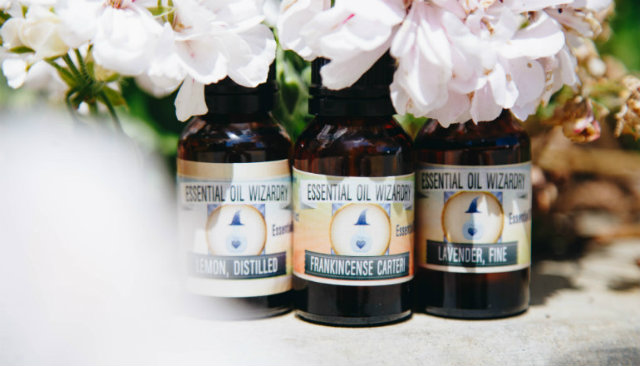
How to Create Your Own Essential Oils Survival Kit
Some of the most useful essential oils to have on hand are:
- Lavendar (Lavandula angustifolia) — It has been said that when in doubt, use lavender. It’s gentle enough to use on babies and is a soothing oil that is great as a stress-relieving sleep aid, calming anxiety, healing burns, cuts and wounds, relieving skin conditions, hay fever, and cold sores.
- Tea Tree (Melaleuca alternifolia) — Improves psoriasis, eczema, acne, nail fungus, and ringworm. Add a couple drops to your shampoo to help boost hair health and control dandruff. Mix a couple drops of tea tree oil with lemongrass or eucalyptus and rub onto exposed areas of your body to help repel insects while hiking.
- Lemon (Citrus limonum) — Add a drop of lemon oil to four to eight ounces of water for a great detoxifier to help cleanse the body and remove petrochemicals. For an instant lift, inhale the aroma to improve your mood. Make your own household cleaner by adding ten to fifteen drops of lemon oil to a spray bottle full of water to use for wiping down countertops and sinks.
- Peppermint (Mentha x piperita) — Peppermint aids with digestion and relieves stomachaches and headaches. Try applying a drop of peppermint oil around your belly button for digestive issues or on your temples or back of the neck to release tension. Falling asleep at your desk? Take a whiff of peppermint oil to wake you and improve mental focus. Peppermint is also great to open sinuses and the respiratory tract when you’re congested. To combat allergies, put a couple drops each of peppermint, lavender and lemon oil in a glass of water and drink. (Note: peppermint is not recommended for children under the age of six).
- Frankincense (Olibanum) — Frankincense is the gold standard of essential oils. Though it is more expensive, when in doubt, it can’t hurt to use frankincense. It is a natural immune booster and has anti-inflammatory properties, as well as being anti-cancer, anti-aging, and high in antioxidants. Frankincense is also a powerful astringent and helps to protect skin cells, helping to slow signs of aging. Mix two to three drops of frankincense oil with a tablespoon of carrier oil and smooth onto your skin wherever you have blemishes, acne, wrinkles, or saggy skin.
At Human Garage, we carry high quality essential oils from Essential Oil Wizardry and consistently use and recommend them to clients to help with headaches, indigestion, boosting their immune system to recover from colds and flu, anxiety, stress, sore muscles, and more.
There are so many essential oils and oil blends out there, for all types of health concerns and overall well-being. The therapeutic benefits are endless, and many people feel the benefits as soon as they take a whiff from one of those power-packed little bottles.
You may have heard essential oils being referred to as, “gifts from the earth.” Simply put, we couldn’t agree more.
